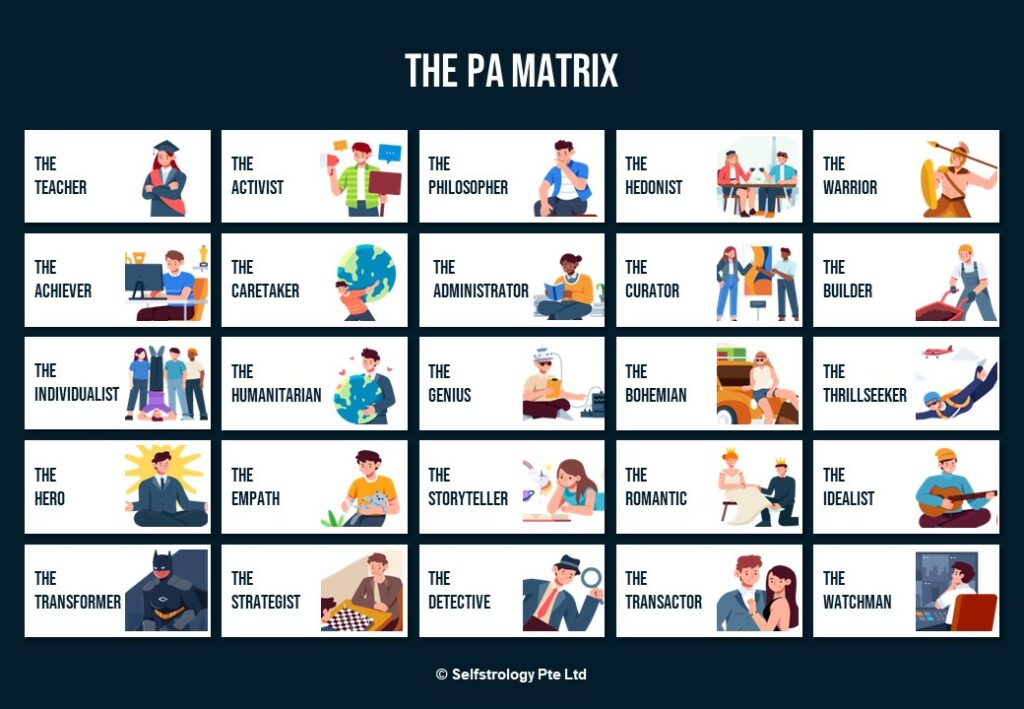“I always put in overtime.”
“I’m always the last one to leave the office.”
“My desk is always the one piled up with files.”
Does this sound like you? And have you ever wondered how some people always have a clear desk, a lighter workload and are able to leave work on time, while your workload is overflowing?
While there may be a few reasons this is happening, it’s worth considering why you have all that work in the first place. It’s possible that you’ve invited that larger workload.
A look at your psychological profile often offers some insights. In fact, there are two particular profiles that stand out as often having an overflowing desk at work.

If you find you are taking on a lot of other people’s work, you may have ‘The Caretaker’ profile’.
As the name implies, Caretakers have an emotional need to look after people.
At work, when you are on a team, or occupying a leadership position, you often become like a motherly figure to the others. This manifests quite often in taking on additional work in an effort to take care of others and ease their load.
You might worry about the coworker who is too preoccupied with relationship problems; the teammate who is new; the tired colleague who has young children at home. As a classic Caretaker, you will always find a reason to ease the load for others, while taking on more work for yourself.
- For the Caretaker, the biggest problem is not their own never-ending list of to-do items. Rather, it is that they can’t seem to let go of their need to worry about other people.
When you are a Caretaker, this means you often feel overworked and run-down, and can even make yourself fall sick from not allowing enough time to balance your own priorities and projects.
You continue to have your own work to do but also have to worry about everybody else’s work at the same time.
- Recommendations to ease your workload as a Caretaker:
It’s important to realize that if you do everyone else’s work for them, they will never learn.
Next month, they’re going to expect you to do the work from them again. And the following month. And it will continue on and on… Even though you may believe you are helping them, you are creating a sense of dependency while also burdening yourself with extra work.
It can be helpful to look at the situation with an expanded view to understand how you might be able to care for others in other ways. Taking on other people’s work may not be your most helpful contribution.
If you leave the organization, who is going to do that work? You’ve been doing so much work for others and they’ve relied on you too heavily.
- It’s important for Caretakers to realize that helping other people to be independent in their work can be a better way to take care of them.
When you teach others or download your skill sets to others, you are empowering them. That’s the best way to take care of people around you. That way, when they are on their own, you can feel confident they will be able to handle any situation even without you.

If you’re not taking on other people’s work, and feeling burdened by your own workload, you may have ‘The Builder’ profile.
Similar to the Caretaker, you rarely have a chance to rest from your work. You work longer hours than most people around you. And sometimes, you may even feel taken advantage of because you’re doing so much…
While everyone around you is on a coffee break, you’re setting up projects in the boardroom, carrying in supplies or and generally working hard from the moment you arrive until well after everyone else has left.
In contrast to the Caretaker though, the reason you’re carrying around is not that you’re taking on other people’s work. As a Builder, you know how everything around you works and have created tasks for yourself to help things run.
In fact, you have created a large workload for yourself from your projects. You are very good with procedures and have a lot of systems and procedures that you run through daily.
But… you’d also rather others didn’t help you with any of it.
When you’re a classic Builder, you often don’t want other people touching your work.
- Builders worry others might not do the work to their specifications.
When you’re a Builder, even if others offer you help, you rarely accept it.
As a builder, one of the biggest difficulties you face is the feeling that others don’t know how to do things as well as you do.
Often, your greatest complaint is then when people do help with anything, it actually creates more problems or work as you fix their mistakes.
The result is that you are stuck with your work. And you consistently show up early to set things up and stick around after everyone else finishes up at the end of the day.
If you aren’t personally a Builder, you’ve surely known someone who operates that way.
- Recommendations to ease your workload as a Builder:
To get ahead of your work, create a system for accepting help. Sometimes it is worth recording your steps and operating procedures to make them available to other people.
With the work clearly broken down into steps, anyone can step in and follow your steps and procedures. When they’re following your detailed specifications, they can effectively ease your workload without requiring you to worry about how they’re doing the work.
Instead, they’re simply following what you have told them to do. Systematized steps and procedures allow many companies and industries to efficiently move projects forward like clockwork even across large work teams.
Having steps and systems formalized and written down can feel really rewarding for builders. In fact, if you’re a Builder, you may fall even more in love with your work when you see your projects moving forward while being seamlessly systematized!
It’s certainly possible that one of these PA profiles aligns with you if you are feeling regularly buried by your do-do list at work.
However, of course, the Psychological Astrology matrix has more profiles than the two profiles outlined here.

Want to go deeper into astrology profiling?
Each PA profile has many layers and diving deep into each nuance helps you understand how they show up in the context of your life and career.
The course is the perfect place to learn more about your own unique mix of PA profiles. Identifying how it impacts your life negatively, while also recognising your strengths, enables you to actually tap into it as a professional asset.
To find out more about the course, click on the button below.





